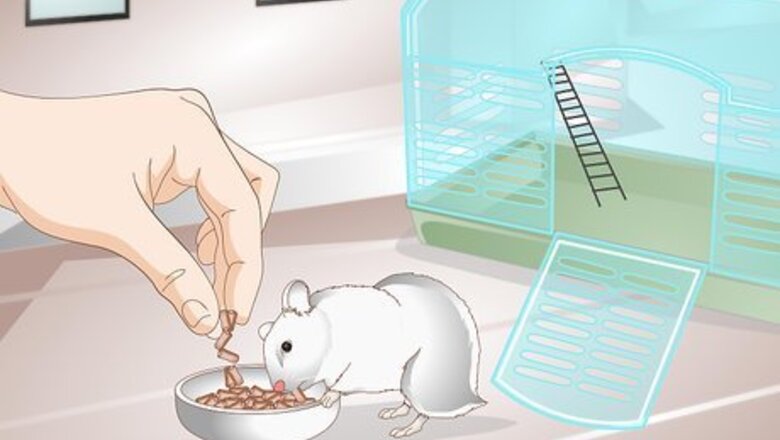
views
Helping Your Hamster Keep His Teeth Clean
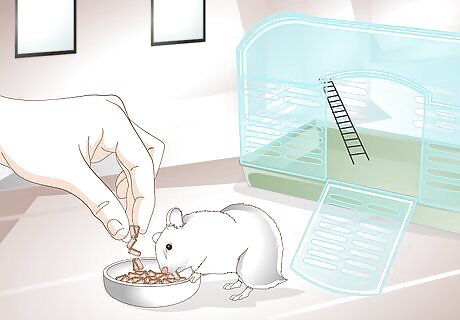
Start with the right food. Feed your hamster a hard food, such as a store-bought pellet food or seed mixture. There are many different varieties available at pet stores that are specially formulated to meet the nutritional needs of hamsters. Avoid feeding your hamster soft foods unless he has some kind of dental disease that makes it difficult to chew. Don't give your hamster any food that has been ground up, as the small particles can get stuck between his teeth, causing cavities.
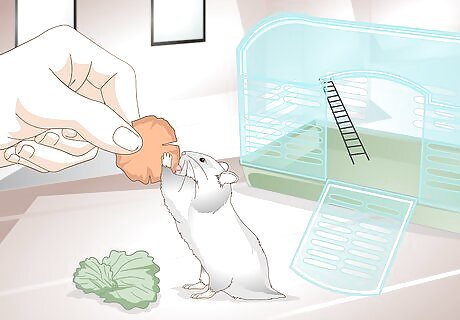
Offer healthy snacks. You should also supplement your hamster's diet with healthy snacks like raw fruits and vegetables. These provide nutrients, and the hard texture also helps promote good dental health. Be very cautious when purchasing store-bought treats for hamsters. Some of them contain sugar, which can cause dental problems like tooth decay. You should also not give your hamster any human foods that may contain added sugar. It's best to stick to fruits and vegetables! The occasional dog biscuit makes a great treat for hamsters. Dog biscuits are hard enough to help hamsters keep their teeth short, and they also contain lots of calcium, which is a vital nutrient that helps keep teeth strong.
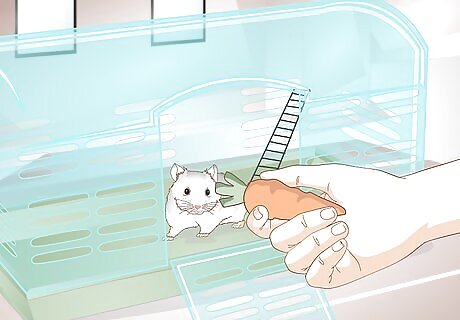
Provide chew toys. Hamsters love to chew, and doing so keeps their teeth filed down to a healthy length. Make sure to put a few different items in the cage for your hamster to gnaw on. There are a wide variety of chew toys for hamsters to choose from at pet stores. Some hamsters also enjoy chewing on the nylon bones that are sold at pet stores for dogs. Not all kinds of wood are healthy for hamsters to chew on. Avoid giving your hamster any wood that has been treated with pesticides or finishes. Some woods also splinter too much, so it's best to stick to small branches from fruit bearing trees if you don't want to use store-bought chew toys.
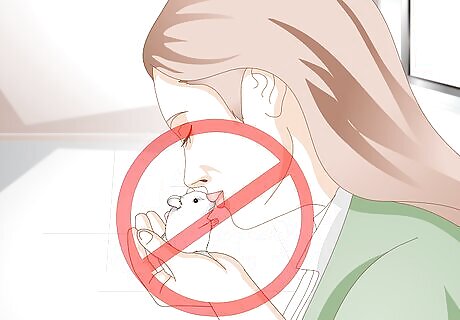
Prevent your hamster from getting bacteria in his mouth. There are a lot of bacteria in the human mouth, and it is possible to pass these bacteria on to hamsters by kissing them or sharing food with them. If you avoid doing these things, you will help keep your hamster's mouth free of bacteria that can cause issues like tooth decay.
Identifying Dental Problems
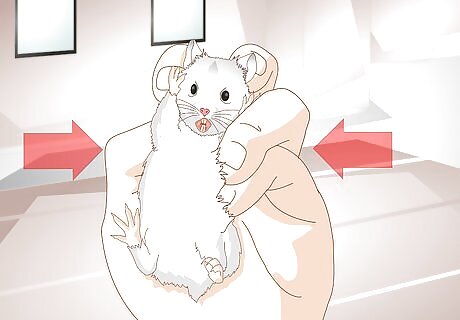
Restrain your hamster. Before you attempt to inspect your hamster's teeth, it is important to make sure you have him properly restrained so that he can't escape or bite you. Try holding back the skin on the scruff of his neck, which will cause the corners of his mouth to turn up into a smile, making it easier for you to examine his mouth. Be careful not to hold onto the scruff too tightly or your hamster may become uncomfortable.

Check for other dental problems. Some hamsters have problems with the alignment of their incisors (the front teeth). This is because a hamster's incisors never stop growing. The top and bottom teeth are supposed to rub against each other. This friction and the friction of chewing helps to keep a hamster's teeth from becoming overgrown. If your hamster's teeth are naturally crooked or if one of them breaks, the teeth may become too long. This is a serious condition that can cause severe pain and prevent your hamster from being able to eat. If you do notice that your hamster's incisors seem misaligned or overgrown, see a veterinarian for advice. The condition may require regular trimming of the teeth, which should be done at the veterinarian's office with a special tool. Pay special attention to the shape and length of the incisors. You should be able to see broken or misaligned teeth without having to restrain your hamster.
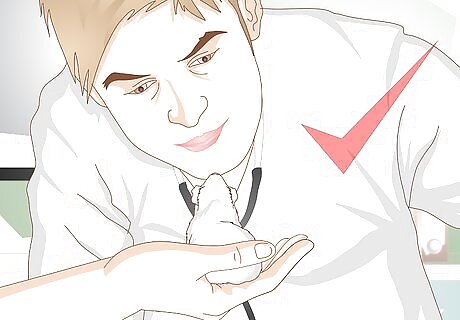
See a veterinarian. Always bring your hamster to the vet if you have any reason to believe that he is suffering from some kind of dental problem. The vet can perform and in-depth exam and let you know exactly what you need to do to address your hamster's condition. Signs of dental problems include drooling, weight loss, bad breath, and a change in appetite. You should also be aware of the color of your hamster's teeth. While yellow is normal and healthy, dark brown or black is not.












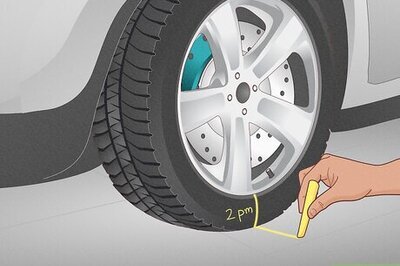



Comments
0 comment